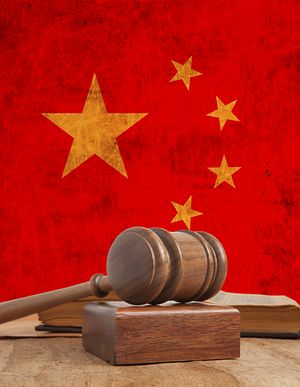In October, the long-awaited Fourth Plenum in China dedicated itself to fostering the “rule of law.” Since then, there’s been a wealth of analysis on the topic, including here at The Diplomat. But one area for potential reform went largely overlooked. Signs at the Fourth Plenum (and since) indicate that Chinese leaders are serious about combating something human rights activists have long decried: heavy use of the death penalty.
According to the Dui Hua Foundation, China executed 2,400 people in 2013 – more than the rest of the world combined. However, according to Dui Hua’s estimates, that figure also represents a 20 percent decline in executions since 2012 and a 75 percent drop since 2002. The Chinese government does not issue official statistics on the number of executions, so ironically the massive drop-off in execution rates has been kept fairly quiet.
China reserves the death penalty for “extremely serious crimes,” but as Gady Epstein of The Economist notes, China has historically had a fairly broad interpretation of what this means. Drug trafficking, financial crimes, and corruption can all be subject to capital punishment, particularly if the central government is encouraging a crackdown on crime. This led to massive amounts of executions through the 1980s and 1990s, with roughly 15,000 executions per year in the ’90s.
Epstein notes that the trend began reversing under the leadership of Xiao Yang, president of the Supreme People’s Court (SPC) from 1998 to 2008. Xiao recognized that China’s unbridled use of the death penalty was a black mark on the country’s international reputation. He began a quiet campaign to cut down on the number of executions, championing an attitude of “kill fewer, kill cautiously.”
It was under Xiao that the SPC gained the power to review all death sentences. Dui Hua attributes a large part of the recent decline in executions to this change; according to their estimate, 39 percent of death sentences are sent back to lower courts for reinvestigation and resentencing. The SPC’s power to review death penalty cases provides a rare check on the authority of lower courts and helps prevent egregious abuses of capital sentencing.
But there’s always more to be done, and Chinese leaders are still working on reforming the death penalty review system. An October 2014 Southern Weekend report revealed that the SPC may institutionalize legal representation in its review of death penalty cases. Analysis by Susan Finder of the Supreme People’s Court Monitor says the idea is related to the general legal reforms mentioned at the Fourth Plenum, including the promise to “complete effective guards against unjust, false, and wrongfully decided cases.” Currently, Finder notes, the death penalty review process is administrative; the proposed reforms would make such reviews a “hearing-centered procedure” where defense lawyers review cases and argue on behalf of their clients. The reforms even include some movement to provide legal aid to those who do not have their own defense lawyer, a crucial change as many people sentenced to be executed cannot afford legal representation.
Changing the review process is only the tip of the iceberg when it comes to death penalty reform. The Supreme People’s Court Monitor also noted the China’s death penalty came under discussion at a recent conference hosted by the Chinese Academy of Social Sciences and attended by SPC officials. Hu Yunteng, head of the SPC Research Office, said that reform is needed to the number of capital crimes as well as reducing judicial use of the death penalty. At the Third Plenum in 2013, the CCP promised to reduce the number of capital crimes “step by step.” Currently the government is considering removing the death penalty as an option for nine crimes, including counterfeiting, certain kinds of smuggling, and “fraudulent fund-raising.”
As noted above, one factor driving these reforms may be China’s desire to remove a black mark from its international reputation. However, domestic opposition to the death penalty has also grown increasingly vocal. In April 2012, the SPC overturned the death sentence of Wu Ying, who had been convicted of fraud, after her sentence sparked outrage on Chinese social media outlets. Netizens were particularly upset about the harsh verdict against Wu given the perceived leniency shown to politically well-connected defendants accused of financial crimes. It should be noted, however, that Chinese netizens can be equally vocal about certain criminals not being sentenced to death, particularly when the accused are rich and politically well-connected.
Another source for popular outrage are stories of cases where the falsely accused were executed after questionable investigations. In a sign of progress on this front, Caixin reports that a 1996 murder case in Inner Mongolia will be reheard. The case in question ended in the conviction and execution of an 18-year-old man named Qoysiletu for rape and murder. In 2005, however, another man confessed to a series of rapes and murder, including the 1996 case. Official reviews suggested that the original trial of Qoysiletu was based on sparse evidence, with most of the evidence centering on a transcribed confession that may have been doctored. After nearly a decade of pleading from Qoysiletu’s family, a new trial will be held. The court is expected to officially overturn the guilty verdict against Qoysiletu – cold comfort to a family who lost their son.
Given the finality of the death penalty, it’s of the utmost importance that China institute reforms to ensure all convictions are solid and all sentences are justified. The use of capital punishment in China isn’t going anywhere (in fact, it’s being put to new purpose to punish convicted terrorists), making it all the more crucial for China’s justice system to reform how the death penalty is applied and reviewed.
































